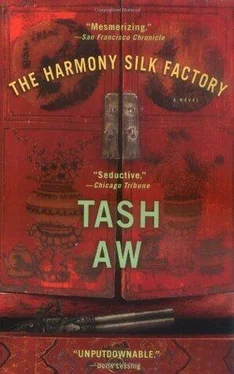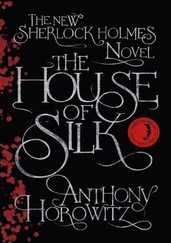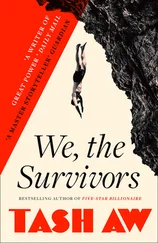“Yes, I-de-o-logy. Good. Tell me, son, what has made you want to do this?”
“I want to help people — just as you have helped me.”
“How are our people these days? You have stopped bringing me news. I guess everything must be fine.”
“Everything is fine. One or two small things. Nothing bothersome. I don’t want to trouble you with anything but the most serious.”
“I see. . Thank you. Is there anything on your mind?”
“No.”
“If there is something, you must tell me. You are a fine, capable man but you are not yet ready for the whole world.”
“Am I not?”
OVER THE NEXT FEW WEEKS Johnny spread the word that he would, under Tiger’s auspices, be holding a lecture in Kuah. Things were not going well in the Party, he said. He had discovered this during his travels. There was a worm eating its way to the heart of the Party and its awful progress had to be halted.
“A lecture? What kind of thing is that?” some people said.
“A big meeting,” said Johnny, “with free beer for all.”
The lecture was held in a large wooden shack on the western fringes of the Lee Rubber plantation near Jeram. The unruly shrubs of the jungle had crept in amongst the rows of rubber trees, and it was difficult to see the paths leading to the shack. It was not a comfortable place. Many years ago it had been used to store processed rubber sheets, but it was too far from the administrative heart of the plantation, and long abandoned by the owners of the estate. It was now used as a not-so-secret place for local young men to meet and drink toddy and samsu.
The shack was nearly full, with people squatting or sitting cross-legged on the dirt-covered floor. A few kerosene lamps hung from rusty nails on the walls, casting a poor, dull light on the small assembly. When moths fluttered too close to the lamps, the light would flicker and pulse, and huge shadows would flash around the room.
“Strong leadership is key to survival,” Johnny said as he walked round the room. He was wearing a coarse green canvas shirt. On its breast the three stars of the MCP were stitched roughly into the fabric. With one hand he brandished a copy of The Communist Manifesto (in English, for added effect) and with the other he handed out bottles of warm Anchor. Most of the people there were too poor to buy beer and many had never even tasted it before. “Without a strong leader we are doomed.” He spoke with the loud, authoritative voice he had been practising for some weeks. “A weak leader, one who does not live with his men, is damaging to the Cause.” He grasped the three stars on his breast.
“Yes, damaging to the Cause!” several people roared, raising their bottles aloft.
“The Cause!” others echoed.
“This is no time to be soft. We cannot sit back and shake our legs. Resting on my laurels, Westerners say. Look what’s happening in China.”
“Look what’s happening in China!”
“Look what’s happening in China!”
Johnny suppressed a smile as he noticed the rapidly emptying beer bottles and reddening faces in the audience. “If the Japanese army invaded the Valley next month,” he continued, “would we be able to fight them? No! Why? Because we are not prepared. Why? Because our leaders are not strong.”
“Curse our leaders! Damn them!”
“If we are not properly led, then the Japanese, the British — anyone — can destroy us,” Johnny said, opening a crate of whisky.
“No, no one can destroy us!”
“Not if our leaders are strong. But our leaders are not strong.”
Bottles of whisky were passed among the men and women in the room. They drank straight from the bottle, taking one sharp gulp before passing it on.
“What’s that coward Tiger Tan doing, huh?” someone cried. “Where is he?”
“Tiger? Who is that person? He is invisible nowadays.”
“He has done a lot of good in the past,” Johnny said.
“The past? Shit! What about tomorrow?”
“I was OK in the past but in the future I might be six feet under — because of Tiger!”
“Tiger is a good man,” Johnny said.
“But a weak leader!”
“A weak leader!”
“Johnny should be our leader!” someone said, and soon there was a chorus of similar voices. Over and over they chanted his name.
Johnny smiled. “Tiger is a good man,” he said simply.
I HAVE OFTEN WONDERED how Johnny must have felt when he cycled back from his triumphant lecture, tasting real power for the first time. I imagine his eyes black and hard, his mind calculating, always calculating, as he cycled home. I have travelled along many of those same tracks, both as a child and as an adult. The roads are surfaced now, mile after mile of broken grey bitumen. There are still many potholes; not even tar can withstand the force of a flash flood. Recently I decided I would cycle the route from Jeram to Kampar, from the site of the long-destroyed shack to where the Tiger Brand Trading Company once stood. I did not know where to begin this journey. The jungle had long ago swallowed up the old rubber plantation, so I made a rough guess and skirted along the notional western border of the vanished plantation. The hut and the rows of rubber trees were no longer there, of course. They were only phantoms of the mind now.
I struck out for Kampar in the weakening five-o’clock sun. The road was deserted. There was — is — little reason for anyone to visit Jeram, and in many places the surface of the road was hidden under layers of pale mud. The rain had carved shallow gullies in this mud, and I decided to follow these scars, travelling in broad arcs along the road. I imagined they were Johnny’s tracks, made just after his lecture. They were not straight, because he had been intoxicated with power. Like Johnny, I cycled like this for many miles, my sweat-soaked shirt stuck to my back and my eyes blinded by the sun.
Still I could not feel Johnny’s wild excitement; I could not understand.
His thoughts did not become mine, and so I cannot tell you why he would go on to do the things he did.
A month after the lecture, Tiger Tan was found dead in a clearing in the jungle not far from his home. He had been shot twice, in the face and in the heart, though the postmortem could not determine which shot had killed him. Either way, it seems certain he knew his killer. The shots were clean and accurate, fired from very close range, suggesting that he had been in the company of his murderer. Of his face, all that remained was his mouth. In the numerous newspaper reports following his killing, his mouth was described simply as being “open.” It was obvious to all, however, that the wide-open mouth was an expression of shock and terror, his last stifled cries ringing hollow in the endless jungle. Maybe he did not even cry out. Maybe he opened his mouth one last time to ask, “Why?” It was a terrible way to die, for sure. Many years later, a young boy who did not believe in the Legend of Tiger Tan went fishing in the area where Tiger was killed. Perhaps he even walked over the exact spot where Tiger’s body lay. As he waded through the cold shallow water he became aware of a man strolling aimlessly through the trees. The man kept appearing and then disappearing in the dense foliage. He was wearing old, simple clothes and he seemed to be talking to himself. “Must be a madman,” the boy chuckled to himself as he continued fishing. As he was leaving the jungle, the boy heard that the man was repeating the word “Why” over and over again. “Why what, old man?” the boy called out as he approached him. It was only when the figure turned around that the boy saw his face, a seething, boiling mass of shapeless flesh.
Nothing had been stolen from Tiger’s pockets. Neither his gold wristwatch nor his jade ring had been taken. Later, the police gave these items to Johnny. They folded them up in a white brocade cloth the chief inspector had bought from Tiger’s shop sometime before, and placed the delicate parcel in a black lacquer box. They brought it to the shop, where Johnny was making preparations for the funeral. They bowed low and gave Johnny the box. Witnesses to this scene say that the great Johnny, who was never known to cry, had “bloodred” eyes, “glasslike” with tears. He accepted the box graciously and said quietly, “This is the beginning of a new time.” All who were present felt the truth of these words.
Читать дальше
Конец ознакомительного отрывка
Купить книгу












